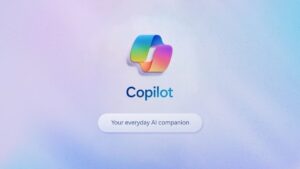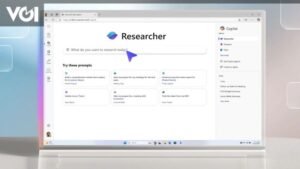Microsoft’s Copilot Lacks Popularity

Microsoft’s AI Initiatives Struggle to Gain Traction
The Current State of Microsoft Copilot
Microsoft’s ambitious efforts in the field of artificial intelligence (AI) do not seem to be yielding the expected results. Despite significant investments and high expectations, the Copilot assistant has recently plateaued with only 20 million weekly users. In stark contrast, OpenAI’s ChatGPT has rapidly attracted over 400 million users. This discrepancy raises questions about user engagement and satisfaction with Microsoft’s AI offerings.
Microsoft has integrated Copilot into its Windows operating system, added a dedicated key on newly designed keyboards, and invested billions to promote the tool. Nevertheless, the response from users has been disappointing. Data from industry analyst Newcomer indicates that Copilot’s user growth has flatlined, a trend highlighted in recent presentations by Microsoft’s Chief Financial Officer, Amy Hood.
User Engagement with AI Tools
The statistics paint a concerning picture for Microsoft. With an estimated 1.5 billion Windows users globally, only a small fraction, less than 1%, are actively using Copilot each week. This is particularly alarming given the resources poured into its development and marketing. The stark comparison of user numbers reveals that Copilot has managed to attract only about 5% of ChatGPT’s audience. Such a scenario underscores the struggles Microsoft faces in establishing its AI product as a mainstream tool.
Reasons for Copilot’s Limited Appeal
Functionality: Many users have found OpenAI’s ChatGPT more effective and versatile than Copilot. As a result, they turn to Copilot only in instances where ChatGPT is unavailable or experiencing technical issues.
User Experience: Microsoft initially promoted Copilot as "the next Start button," showcasing its expected significance in everyday computing. However, users have recently had the option to reassign the dedicated Copilot key back to the traditional Menu key, suggesting a lack of confidence in its utility.
- Technical Issues: Reports indicate that Copilot suffers from frequent technical glitches, leading to user frustration and dissatisfaction. This inconsistency hampers the overall user experience and discourages regular use.
Broader Industry Challenges
Microsoft is not the only tech giant facing difficulties in the AI sector. Intel, another significant player in technology, recently admitted that the demand for its AI hardware has been disappointing as well. This highlights a broader trend in the tech industry where many companies struggle to gain traction with their AI offerings.
Factors Contributing to Industry Struggles
Market Saturation: As many companies rush to introduce AI products and features, users may experience fatigue and become less willing to adopt new technologies.
Competition: The rapid development of AI by multiple companies creates a competitive landscape where only the most effective solutions gain user loyalty.
- User Education: There is still a significant gap in understanding how to effectively use AI tools. Many users might not yet grasp the full capabilities of these technologies, affecting their willingness to adopt new solutions.
In summary, Microsoft’s Copilot is currently struggling to compete with popular alternatives like ChatGPT, despite its integration into one of the most widely used operating systems in the world. The disappointing user engagement numbers and constant technical issues reflect a challenging landscape for AI tools. As the tech industry evolves, it will be interesting to see how Microsoft and other companies adapt their strategies to capture user interest and loyalty.






